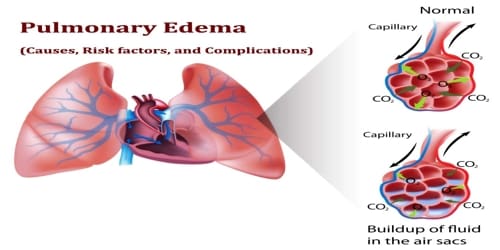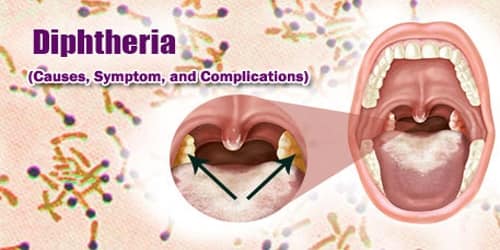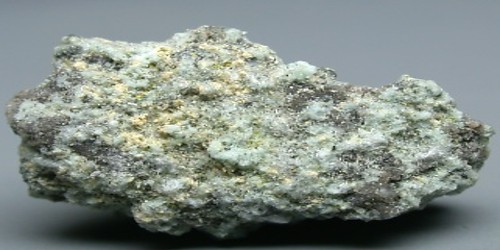Pulmonary Edema (Causes, Risk factors, and Complications)
Definition: Pulmonary Edema, also known as lung congestion, lung water, and pulmonary congestion, is a condition caused by excess fluid in the lungs. It leads to impaired gas exchange and may cause respiratory failure. It is due to either failure of the left ventricle of the heart to remove blood adequately from the pulmonary circulation (cardiogenic pulmonary edema), or an injury to the lung parenchyma or vasculature of the lung (noncardiogenic pulmonary edema).
The term edema is from the Greek οἴδημα (oídēma, “swelling”), from οἰδέω (oidéō, “I swell”).
When pulmonary edema occurs, the body struggles to get enough oxygen and people start to have shortness of breath.
In most cases, heart problems cause pulmonary edema. But fluid can accumulate for other reasons, including pneumonia, exposure to certain toxins and medications, trauma to the chest wall, and visiting or exercising at high elevations.
Fast facts on pulmonary edema –
- Pulmonary edema is a condition involving fluid buildup in the lungs.
- Sudden onset (acute) pulmonary edema is a medical emergency.
- Symptoms include shortness of breath, cough, decreased exercise tolerance or chest pain.
Treatment of pulmonary edema usually focuses on improving respiratory function and dealing with the source of the problem. It generally includes providing additional oxygen and medications to treat the underlying conditions.
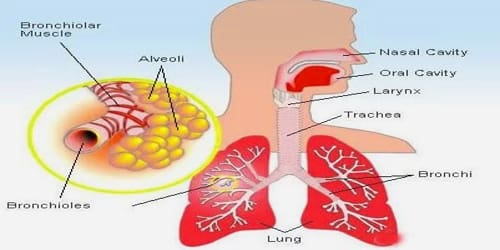
Causes and Risk factors of Pulmonary edema: The most common cause of pulmonary edema is congestive heart failure (CHF). Heart failure is when the heart can no longer pump blood properly throughout the body. This creates a backup of pressure in the small blood vessels of the lungs, which causes the vessels to leak fluid.
During normal breathing, the small air sacs in the lungs – alveoli – fill up with air. Oxygen is taken in, and carbon dioxide is expelled. Pulmonary edema occurs when the alveoli are flooded.
When the alveoli are flooded, two problems occur:
- The bloodstream cannot get enough oxygen.
- The body is unable to get rid of carbon dioxide properly.
Common causes include:
- pneumonia
- sepsis (blood infection)
- exposure to some chemicals
- organ failure that causes fluid accumulation – congestive heart failure, kidney failure, or liver cirrhosis
- near-drowning
- inflammation
- trauma
- reaction to certain medications
- drug overdose
Besides direct injury to the lungs, as in ARDS, other causes include:
- brain injuries such as brain bleeding, stroke, head injury, brain surgery, tumor, or seizure
- high altitude
- blood transfusion
People with heart problems or heart failure are the most at risk for pulmonary edema. Other factors that may put a person at risk include:
- history of pulmonary edema
- history of lung diseases, such as tuberculosis or chronic obstructive pulmonary disorder (COPD)
- vascular, or blood disorders
Causes of pulmonary edema that are not due to poor heart function are called noncardiogenic; they are typically caused by ARDS (acute respiratory distress syndrome). This is a severe inflammation of the lungs that leads to pulmonary edema and significant breathing difficulties.
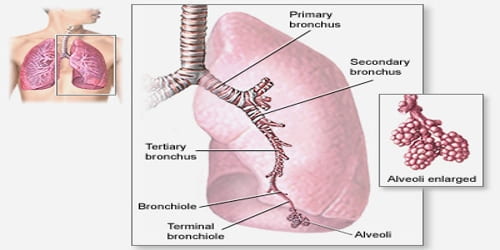
Complications of Pulmonary Edema: If pulmonary edema continues, it can raise the pressure in the pulmonary artery (pulmonary hypertension), and eventually the right ventricle in our heart becomes weak and begins to fail. The right ventricle has a much thinner wall of muscle than does the left side of our heart because it is under less pressure to pump blood into the lungs. The increased pressure backs up into the right atrium and then into various parts of our body, where it can cause:
- Lower extremity and abdominal swelling
- Buildup of fluid in the membranes that surround our lungs (pleural effusion)
- Congestion and swelling of the liver
Left untreated, acute pulmonary edema can be deadly. In some instances, it may be fatal even if people receive treatment.
Information Source:
